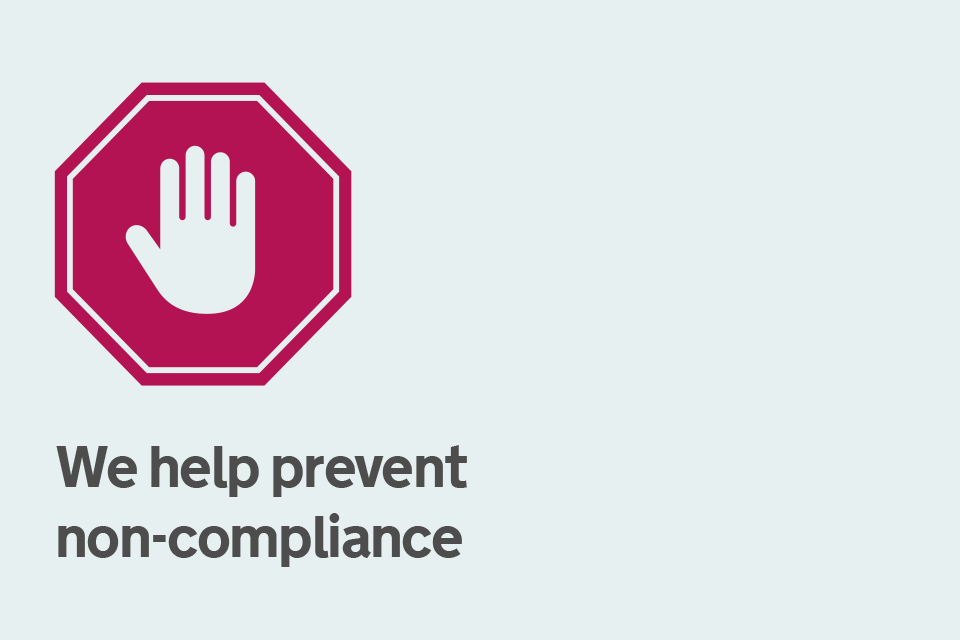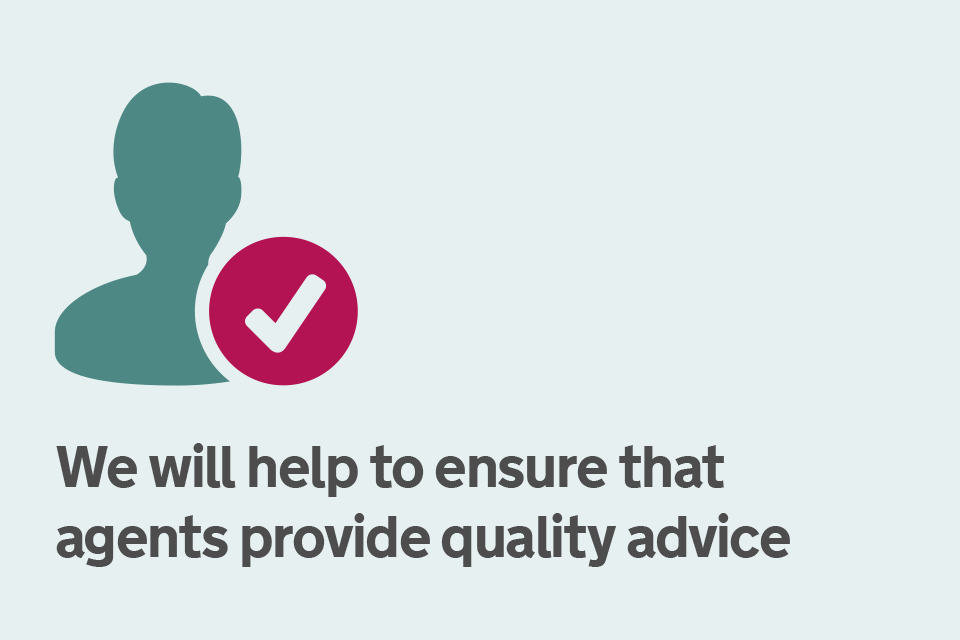No Safe Havens 2019: assisting compliance
Updated 16 May 2019
HMRC recognises that the vast majority of our customers want to comply with their tax obligations and pay the right amount of tax at the right time. At 5.7%, the UK tax gap is at a near record low[footnote 1].
Assisting compliance is the second of our aims, as getting tax right, for everyone, helps HMRC too. Therefore increasing customers’ awareness and understanding of their responsibilities is at the heart of our approach to help ensure the right UK tax is paid.
However, UK tax obligations for non-UK income, gains and transfers can be complex. We understand that, as a result, some customers inadvertently pay less tax than they should by making mistakes or relying on out-of-date advice.
To help customers get things right as easily as possible we will seek new ways to make sure people know what they need to do. By providing appropriate help we will make it easier for customers to understand their obligations and get their tax right first time. We will work in partnership with agents to do this, including by promoting good standards of tax advice.
We will make greater use of the unprecedented amounts of offshore data HMRC is receiving to help us to design systems and processes that prevent mistakes before they are made.
By investing in our capabilities and using behavioural science we will increase our understanding of the drivers of non-compliance and barriers to compliance for offshore arrangements. We will improve voluntary compliance through education, aiding customers’ understanding of offshore compliance and developing ways to prompt customers or remind them of their obligations.
Promoting compliance
HMRC aims to promote compliance and prevent non-compliance ever taking place. As a customer-centric organisation we focus our activity around 5 customer groups[footnote 2], and tailor our systems and services to the needs of each group based on their size, behaviour, complexity and risk.

This graphic shows a tick and the caption: we help to promote compliance.
We design our approach to offshore tax compliance for each customer group to help them get tax right first time. Using analytical techniques, such as trend analysis and systems mapping, we will continue to develop products and processes to promote compliance.
This targeted response is informed by HMRC’s annual review of the UK tax gap[footnote 3]. HMRC analysts have developed a sophisticated, robust methodology to ensure non-compliance estimates are representative of the population. HMRC was the first tax authority in the world to measure and publish tax gap estimates for both direct and indirect taxes every year, enabling HMRC to target resources effectively and efficiently to collect the tax that is due.
The UK’s largest businesses, and wealthiest individuals, are allocated specialist Customer Compliance Managers (CCMs), due to the complexity of their affairs. CCMs work closely with HMRC’s technical tax specialists and build professional relationships with customers and their agents to settle tax issues and address any compliance issues. The tax affairs of around half of large businesses are under active investigation by HMRC at any one time.
We will help our customers understand what they need to do by improving guidance on UK tax obligations regarding overseas income, gains and transfers. We will seek customers’ views about how we can help them and how we might better target our messaging and make use of technology. As part of this work, we will investigate opportunities to work more closely with third parties, including online platforms, based in the UK and overseas.
We will use data, including the information we are receiving through CRS, to help promote offshore tax compliance. This includes piloting the use of prompts in the foreign pages of the online self-assessment return to remind customers that HMRC receives a huge amount of data on offshore investments and care is needed to ensure the foreign pages are completed correctly.
We will explore providing guidance to build customers’ awareness of the tax implications of their activities and help them be tax compliant. For example, if a customer starts an online business we want to see they are provided with the help and advice they need to ensure they register for tax at the correct time and meet all their obligations right from the start.
We are already designing our systems and processes to help customers get things right. HMRC is investing over £1.3 billion to become the most digitally advanced tax authority in the world through the Making Tax Digital programme[footnote 4].
Making Tax Digital includes introducing new online tax accounts to give our customers a single, simpler view of their dealings with HMRC – including those arising from offshore arrangements – to help reduce the scope for misunderstanding or error. In addition, these accounts will facilitate secure communications with all our customers, including those based overseas.
Better systems and processes will give our customers greater confidence that they are paying the right amount of tax and will save them time. Helping more customers get their tax right first time allows us to target resources on those who most need additional help, and on those determined not to pay the right tax.
As we continue to design systems and processes to promote offshore tax compliance and deter non-compliance, we will continue to provide a process for customers to correct mistakes. It will always be in the customer’s interest to disclose non-compliance and cooperate with HMRC’s enquiries.
Preventing non-compliance
Across the tax system, customer mistakes cost the Exchequer over £9 billion in 2016 to 2017[footnote 5]. The best way to tackle non-compliance is to prevent it happening in the first place.

This graphic shows a hand stop sign with the caption: we help prevent non-compliance.
We will deepen our understanding of our customers’ overseas activities. Using technology and our expertise we will then identify specific issues, such as common mistakes, which can then be addressed before they become non-compliance.
For example, more prompts may be included in the online tax return to alert customers if they may be about to make a common mistake.
We are designing systems around the customer, using simple, user-friendly messages to help them understand issues and direct them to guidance. In addition, we aim to engage promptly where we detect life events, such as retirement, that could change our customers’ tax position to prevent potential mistakes. We will explore opportunities to tailor this approach to our customers with offshore activities.
Online tax accounts provide new opportunities to engage with and learn from our customers. Using the data within these accounts, and complementary information we receive from other sources, we will develop new ways to provide assistance. We are already working closely with the software industry to ensure a range of products are available for our customers to help achieve these goals.
We are also exploring how new and emerging technologies, including automation, artificial intelligence and distributed ledgers, can be used to help improve our understanding of potential tax risks. This will help HMRC to prevent mistakes from happening in the first place, whilst focusing on those who need support or those who deliberately seek to pay less than they should.
Working with agents and intermediaries
HMRC recognises the important role agents and intermediaries play in helping our customers comply with their tax obligations. They help reduce burdens on customers and ensure the right tax is paid at the right time. This is particularly important where customers’ tax affairs involve complex offshore arrangements.

This graphic shows a head with a tick and the caption: we will help to ensure agents provide quality advice.
We will continue to work with the tax profession to maximise the role that they can play in helping HMRC promote compliance and prevent non-compliance on offshore arrangements.
Where HMRC intervention is required, we will always seek to work collaboratively with our customers’ agents to help correct mistakes and resolve disputes. We will review ways in which HMRC can better help the compliant majority of agents and intermediaries.
Robust professional standards help ensure agents provide high quality advice. Leading UK professional bodies set and enforce minimum standards of behaviour for their members in relation to tax through the Professional Conduct in Relation to Taxation[footnote 6] (PCRT). We will support the relevant professional bodies in upholding the standards, for example by reporting more poor work by agents to their professional body for appropriate disciplinary action.
We will also explore opportunities to work with other jurisdictions to promote comparable standards for UK tax advice in their jurisdictions. This would help prevent non-UK agents providing advice that results in our customers paying less UK tax than they should.
Practically every bank that operates in the UK has adopted the Code of Practice on Taxation for Banks[footnote 7] under which, amongst other things, they commit not to promote tax avoidance arrangements. HMRC will continue to monitor compliance with the Code and how it supports improved behaviour across the banking sector.
In line with HMRC’s agents strategy, we will consider how to work with agents and intermediaries to deliver a digital service and make use of the data HMRC is now receiving. We will continue to work with representative bodies to support consistently high standards for paid tax advice. In addition, we are working with financial institutions to share best practice on identifying and responding to fraud and tax evasion through the Counter-Fraud Forum.
Promoting voluntary compliance, and making it easier for everyone to understand their offshore tax obligations, will help maintain a stable tax system that everyone has confidence in.
You can read the next section: No Safe Havens 2019: responding appropriately.
-
Measuring tax gaps 2018 edition - tax gap estimates for 2016 to 2017, page 4. HMRC: 14 June 2018. ↩
-
These 5 groups are large businesses, mid-sized businesses, small businesses, individuals and the wealthy. Criminals are dealt with outside of these groups and are subject to a very different approach. ↩
-
Measuring tax gaps 2018 edition - tax gap estimates for 2016 to 2017. HMRC: 14 June 2018. ↩
-
Overview of Making Tax Digital. HMRC: 9 February 2019. ↩
-
Measuring tax gaps 2018 edition - tax gap estimates for 2016 to 2017, page 5. HMRC: 14 June 2018. ↩
-
These include the Association of Accounting Technicians, the Association of Certified Chartered Accountants, the Association of Tax Technicians, the Chartered Institute of Taxation, the Institute of Chartered Accountants in England and Wales, the Institute of Chartered Accountants of Scotland and the Society of Trust and Estate Practitioners. The PRCT is available on their websites. ↩
-
The Code of Practice on Taxation for Banks. HMRC: 9 July 2014 and last updated 17 December 2018. ↩
